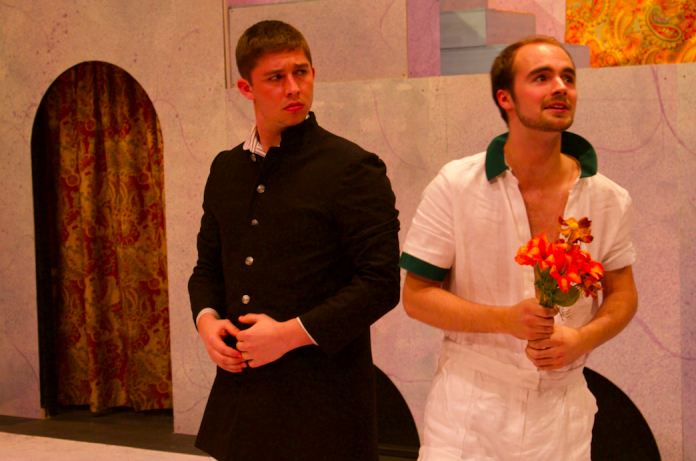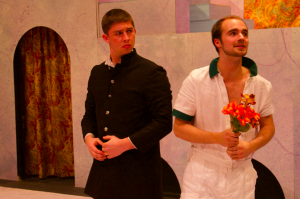
The famous monologue of indecision, “to be or not to be,” from William Shakespeare’s play “Hamlet” has echoed throughout many classes, theaters and screens. However, DePauw Theater’s production this spring, “Hamlet (Mostly),” interrupted Hamlet’s famous lines and encouraged the audience members to be an active audience.
The five acts of this show were performed on one set that used lights and constant movement to change scenes. This adaptation was written and directed by Andrew Hayes, a professor of communication and theatre, and performed by a cast of 16 students over April 12-15.
Throughout the show, dialogues and scenes were interrupted and broken down by Horatio, played by senior Deja West, who narrated the plot. This created a friendly atmosphere for people to experience Shakespeare for the first time or to enjoy Hamlet’s monologue with him.
The audience engaged with the play through one character posing as an audience member. This character, played by junior Julian Librizzi, yelled lines from the house, acting as comic relief. According to the playbill, this role was cast to vocalize student frustration.
Characters were played by the opposite gender of the written roles, adding another twist to the traditional performance. Although the characters were played by the opposite gender, the costumes were androgynous. Hamlet was played by first-year Amalia Crevani. In act four, a mourning Ophelia, played by junior David Mather, handed flowers to audience members.
This show was brought to life by Hamlet’s high energy and the spectrum of emotions that Horatio displayed.
One very unique change, was that Horatio told the story the way that he wished that it went, and then the actors reenacted the same scene the way that it was written.
Unlike the “Hamlet” that many people are familiar with, this modern adaption simplified the complicated Shakespeare play through interactive acting, making it easy to follow.

